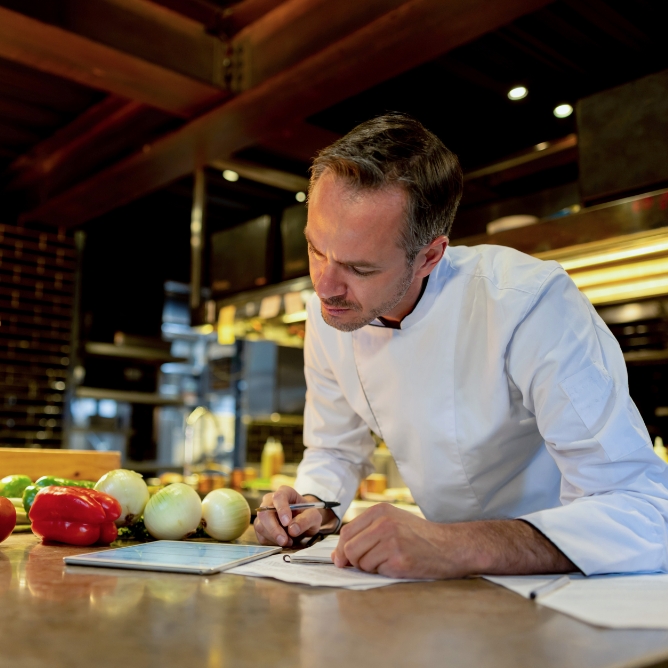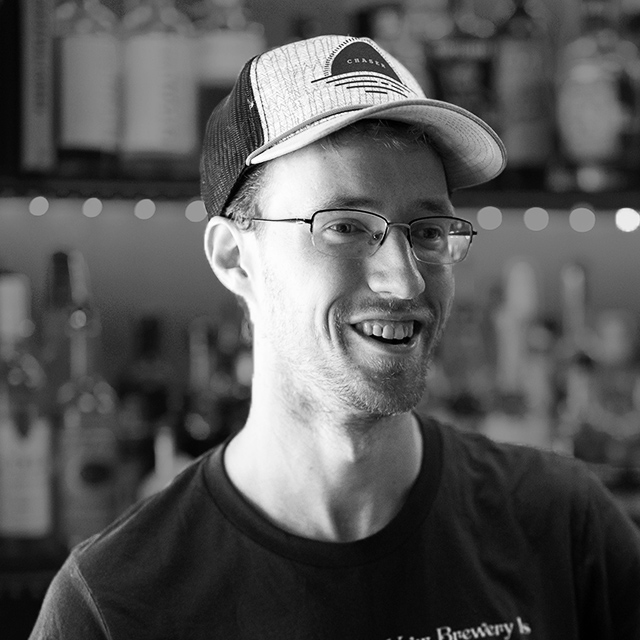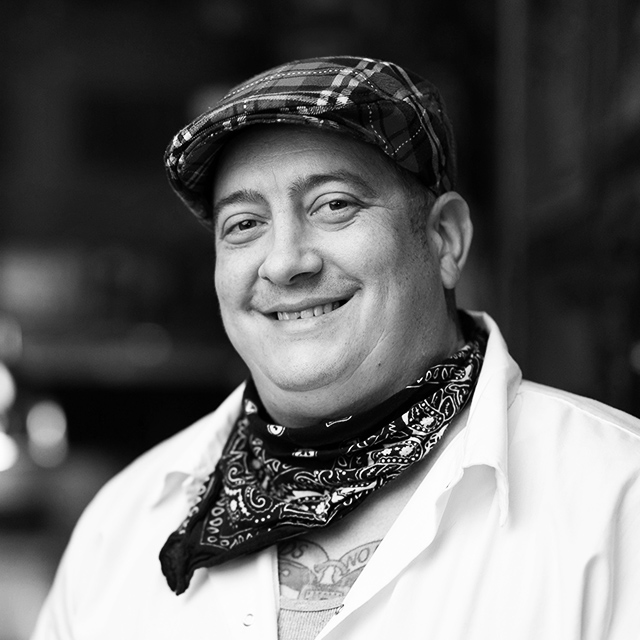Oscar Johnson

chef/owner, Jimmy Pearls
Johnson’s career path
- Dishwasher
- Line Cook
- Demi Chef
- Sous Chef
- Chef/Owner
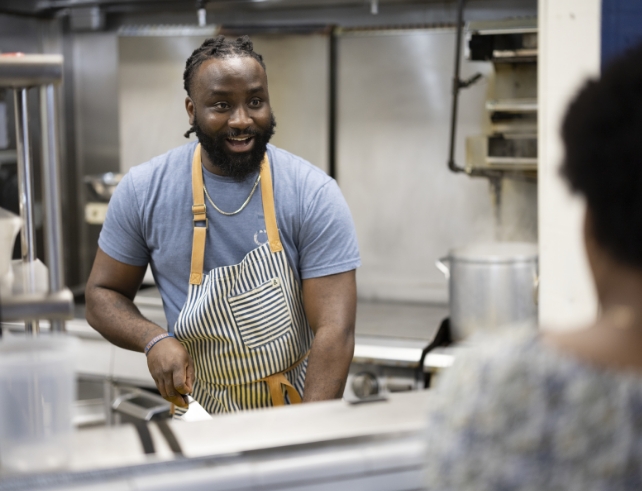
Oscar Johnson’s Form of Ministry
The chef and co-owner of Jimmy Pearls brings people together through food and passes on what others have taught him.
Oscar Johnson uses his role as a chef and co-owner of Jimmy Pearls in Charlotte to spread his mission.
“This is a form of ministry for me. My mission is to give people great food, give them a memorable experience, and just share my life and my story with them. That’s what we’re called to do,” Johnson says. “There are ways to give back, and not just giving people food and having a fundraiser, but just bringing people into your space and having a conversation and being approachable.”
Johnson started cooking meals at home to help his working mom feed the family. He watched how she fried chicken and made sides and desserts and then started making them himself. As he gained approval for his skills within the family, his notoriety started to expand.
Johnson said he’s known he wanted to be a professional chef since completing his high school culinary program. Then the Virginia native completed the Careers through Culinary Arts Program, or C-CAP, which also worked directly with a local restaurant to give students real-world experience. He’s been a working chef for 15 years now, with roles in casual and fine dining restaurants, country clubs, and boutique hotels. In 2022, he was named Chef of the Year by the North Carolina Restaurant and Lodging Association.
He met his business partner, Daryl “Coop” Cooper at Johnson & Wales University, where they became friends. He discusses their restaurant, Jimmy Pearls, as well as what he’s learned through the years and what inspires him.
Q: Where did the name Jimmy Pearls come from?
A: I always love explaining this part of it. My partner, Coop, he’s also a chef and co-owner, we were just going back and forth with names. We’re both from the Tidewater region of Virginia, and so the two most-eaten species of seafood are the blue crab and oysters. The blue crabs have a male and a female variety, and they are called Jimmies and Sallies. So the Jimmies are usually the larger crabs.
Jimmy Pearls comes from that: the pearl from the oyster and then the male variety of the crab, called Jimmies. It just had a nice little ring to it once you said it, you know what I mean? So, we just took it and ran with it.
Q: Why do you specialize in seafood?
A: Even at a very, very young age, I just always had a great taste for seafood. I just feel like seafood is to be kept simple, but at the same time, there’s a lot of interesting things and different experiences that you can build from seafood all across the diaspora. So that’s one of those things that Coop and I just felt like we had an opportunity, here in Charlotte, to really take stuff to the next level with seafood and just kind of give it a different face.
We all have some sort of disability. I have a hearing disability, so I use that, too, to be sensitive to the needs of other people. I want to make sure I’m communicating clearly and that you understand what’s going on. And that you feel empowered, and that you have fun when you come here.
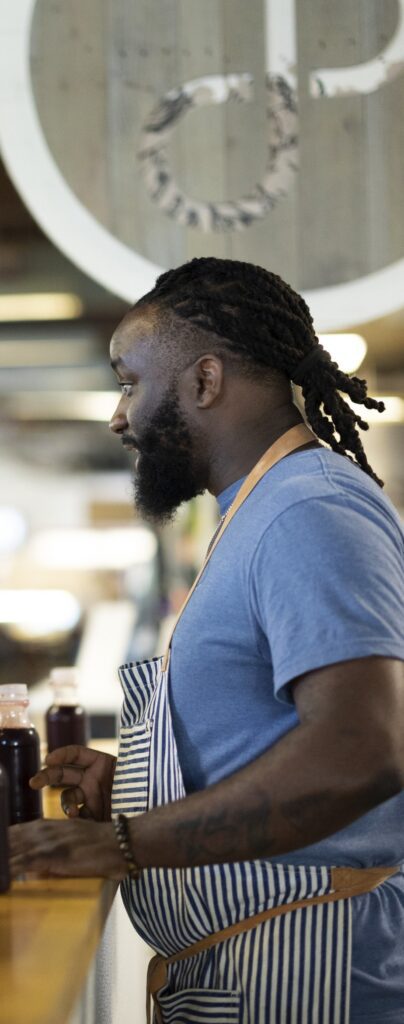
Q: How have the different kinds of kitchen experiences benefited you as an owner?
A: I have the magnifying glass on things a lot more. Every little detail counts; every penny counts. Also, being more mindful of how you train people and how people have different learning styles. We all have some sort of disability. I have a hearing disability, so I use that, too, to be sensitive to the needs of other people. I want to make sure I’m communicating clearly and that you understand what’s going on. And that you feel empowered, and that you have fun when you come here. I’m just ultra-sensitive to certain things because I want to see the best results.
Q: How do your country club and your luxury hotel experiences shape the way you run your business?
A: Organization and attention to detail. I worked with two master chefs, and they both competed globally and won medals. Even beyond all of that, it’s just how they carried themselves, just being professionals, being clean, having everything in their respective places (mise en place, as we like to call it). That aspect of country club and boutique hotel experience shaped how I run Jimmy Pearls right now.
Q: How are your background and culture represented through food?
A: That’s part of my DNA; that’s who I am. I’m proud to be from Virginia. There were some really great things that took place in my life that are directly in alignment with what I’m doing right now with food. I have a lot of relatives in Hampton, Virginia, which is right on the water, in the peninsula area, and in rural Lawrenceville. It’s such rich history.
The way that I like to transform ingredients, it’s not just about giving things a new face. With our experience as chefs, we can put some refinement on it just because of our skillset. But we’re still making things the way that they were made when Grandma and Auntie and all of them made those dishes. I remember how those things made me feel, and I was like, “I want to do the same thing for people.”
So that’s how all of that stuff ties into Jimmy Pearls and everything on our menu.
Q: How do you respectfully incorporate other cultural influences into food?
A: Cooper and I struggled for a long time trying to figure out what Jimmy Pearls’ identity was. Of course, it was seafood—yeah, we’re from Virginia. That was the message. Everyone knew that. But we have such an appreciation, a genuine appreciation, for international cuisine.
Coop, he loves Mexican cuisine. And there’s even the African diaspora of Mexican cuisine. And I love all types of Asian cuisine. You’ve really got to take time when trying to pull some influences from another culture and put it on your menu. You’ve got to know your stuff. Even if you hadn’t been there, you can’t just look something up on the internet. You’ve got to actually dig up some old cookbooks and really look at the cooking methods and techniques and things like that. We have a genuine admiration for the flavors.
You never know what people are going through, so we try to make sure that we create a space that’s safe for people to express themselves.
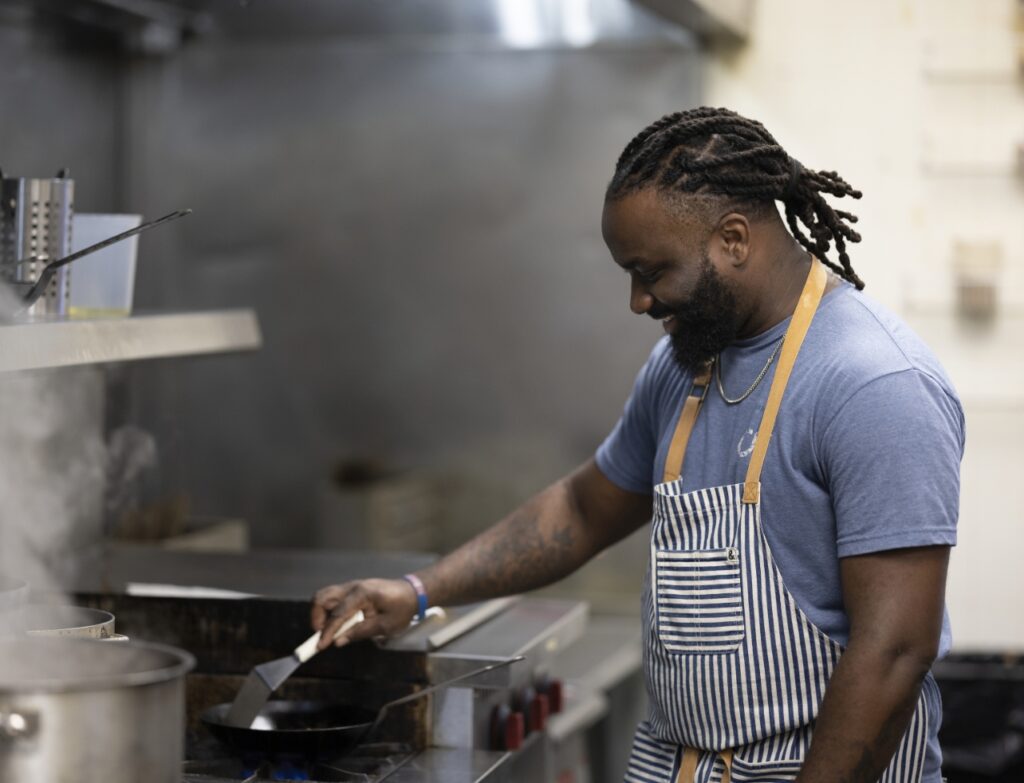
Q: How do you build and retain an inclusive and diverse staff?
A: It just starts with us. The type of people that we are. We’re family oriented. I’m a simple man; I don’t make things complicated. I always set out to do right by people every day. I’m just very passionate about life and am just a people person. You never know what people are going through, so we try to make sure that we create a space that’s safe for people to express themselves. And everybody who comes through, they call us their cousins.
Q: What keeps you in Charlotte?
A: It’s the camaraderie amongst chefs and people in the food service industry—some are mixologists, some are sommeliers—all of them. The community keeps me here. The community and the support that we all have for one another, cheering each other and acknowledging like, “Hey, Oscar’s doing some dope stuff over there at the Market,” but then, I’m reposting what they’re doing. We just really support each other a thousand percent here in Charlotte.
Meet some of the folks helping Oscar Johnson build community.
Search for your next career move today.
browse jobs



